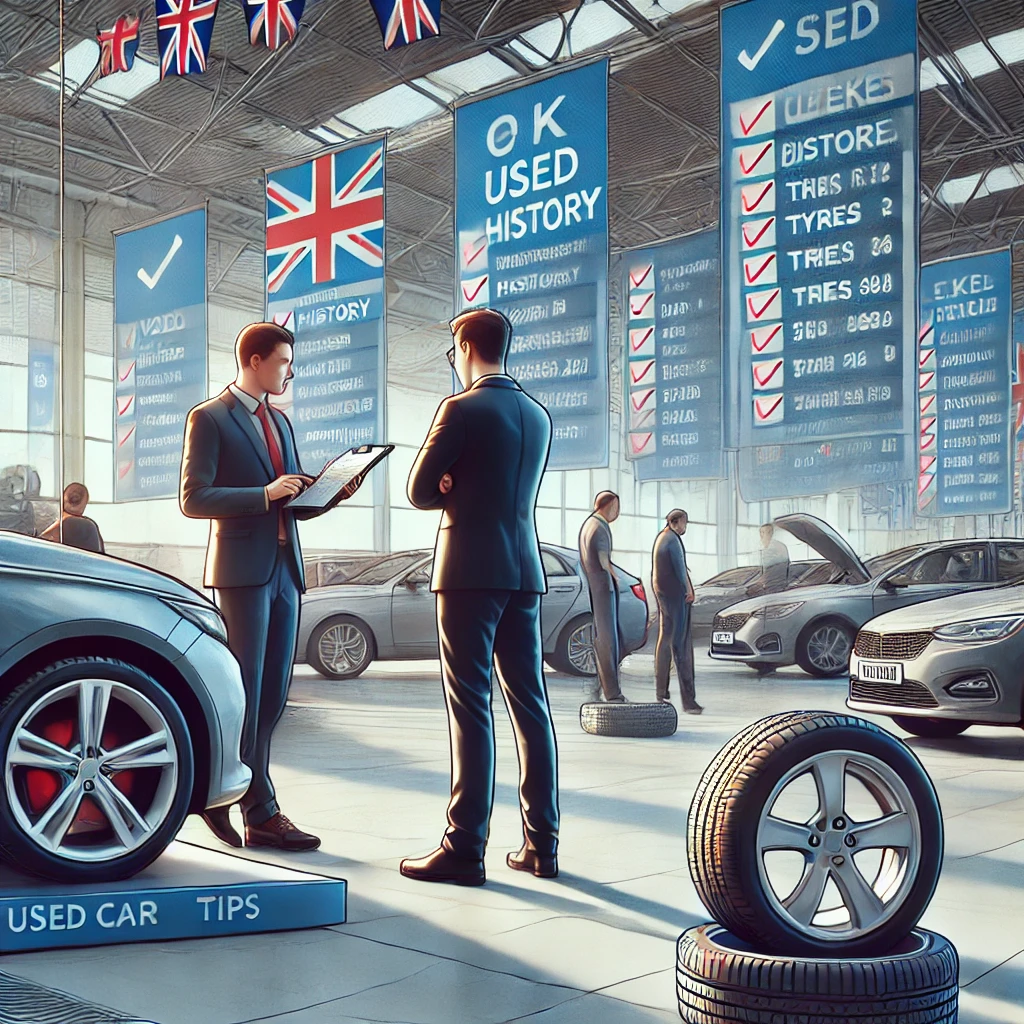

Used Car Buying Tips : Avoiding Used Car Buying Mistakes in the UK
Buying a used car can be a great way to save money while still getting a reliable vehicle. However, without the right approach, it can also lead to costly mistakes. To help you navigate the process successfully, here are some essential used car buying tips focused on avoiding common pitfalls, particularly in the UK market.
1. Do Your Research
One of the most important used car buying tips is to thoroughly research before making any decisions. Start by identifying the type of car that suits your needs, whether it’s for commuting, family use, or weekend adventures. In the UK, popular choices include small city cars like the Ford Fiesta, reliable family cars like the Volkswagen Golf, and durable SUVs like the Nissan Qashqai.
Check online reviews, compare different models, and pay attention to common issues reported by other buyers. Websites like Auto Trader and What Car? are excellent resources for gathering this information. Knowing the market value of the car you’re interested in will also give you an edge when negotiating the price.
2. Check the Vehicle History
Another critical used car buying tip is to always check the vehicle’s history before committing to a purchase. In the UK, services like HPI Check and the DVLA’s MOT history service can provide detailed reports on the car’s past. These reports reveal important information such as whether the car has been in any accidents, if it has outstanding finance, or if it’s been reported stolen.
Understanding the car’s MOT history is particularly important in the UK. The MOT test ensures that vehicles meet road safety and environmental standards. Reviewing this history will give you insights into the car’s condition and any recurring issues that could be costly down the line.
3. Inspect the Car Thoroughly
One of the most common used car buying mistakes is failing to inspect the car thoroughly. When viewing a car, make sure to check both the exterior and interior. Look for signs of rust, dents, or mismatched paint, which could indicate past accidents or poor repairs. Inside, ensure all the controls, lights, and electronics are functioning properly.
Don’t forget to inspect under the bonnet. Look for any leaks, unusual noises, or worn-out parts that might require expensive repairs in the future. If you’re not confident in your ability to inspect the car, consider bringing a trusted mechanic with you. This is one of the used car buying tips that can save you from unexpected repair costs.
4. Take a Test Drive
A test drive is an absolute must and is one of the top used car buying tips you should follow. Driving the car allows you to assess its performance, handling, and comfort. Pay close attention to how the car accelerates, brakes, and handles turns. Listen for any unusual noises from the engine or suspension that could signal underlying issues.
In the UK, where road conditions can vary significantly, it’s important to test the car on different types of roads, including city streets and motorways. This will give you a better idea of how the car performs in various driving conditions.
5. Verify the Mileage
Another key used car buying tip is to verify the car’s mileage. A car with unusually low mileage might seem like a great deal, but it could also be a red flag. Low mileage can sometimes indicate that the car has been left unused for long periods, which can lead to mechanical issues. On the other hand, high mileage cars may have excessive wear and tear.
Cross-check the mileage on the odometer with the service history and MOT records to ensure there hasn’t been any tampering. Consistent mileage readings across different records suggest the car has been well-maintained.
6. Negotiate Smartly
Negotiation is where many buyers make mistakes. One of the best used car buying tips is to use the information you’ve gathered during your research and inspection to negotiate a fair price. Don’t be afraid to point out any flaws or issues as leverage for a lower price. However, be realistic and know when to walk away if the seller isn’t willing to meet your offer.
7. Consider the Total Cost of Ownership
When buying a used car in the UK, it’s important to consider the total cost of ownership. This includes not just the purchase price, but also ongoing costs such as insurance, road tax, fuel, and maintenance. Some cars may have a lower upfront cost but could be more expensive to run. Make sure to factor these into your decision-making process.
8. Finalise the Paperwork
The last but equally important used car buying tip is to ensure all paperwork is in order before finalising the purchase. In the UK, you’ll need the V5C registration document (logbook) to legally own the car. Make sure the details match the car you’re buying, and ask for a receipt of purchase and any service records.
Used Car Buying Tips
By following these used car buying tips, you can avoid common mistakes and make a smart, informed purchase. Remember, buying a used car is a significant investment, so take your time, do your research, and don’t rush into a decision. With the right approach, you’ll drive away with a car that not only meets your needs but also offers great value for money
If you’re considering buying a used car, be sure to check out the article “Buying a Used Car in the UK: Top 10 Tips for Buying“ for essential advice. Additionally, understanding the “What is MOT Test: What to Check Before Buying a Used Car“ can help you choose a reliable vehicle with confidence.
Add a comment Cancel reply
Related posts


What is MOT Test : 7 crucial checks for a confident used car purchase









